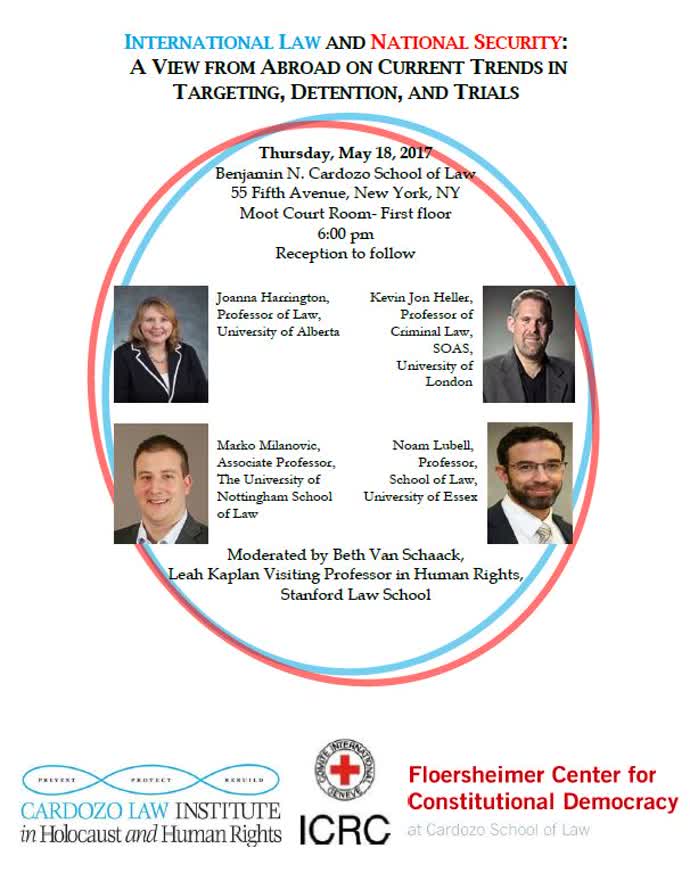
On May 18, UAlberta Law's Professor Joanna Harrington was part of a panel discussion in New York on the views from abroad on current trends in targeting, detention and trials at the Cardozo School of Law. Moderated by Professor Beth Van Schaack of Stanford Law School, the panel also featured Professor Kevin Jon Heller of the University of London-SOAS and the University of Amsterdam, Professor Noam Lubell of the University of Essex, and Associate Professor Marko Milanovic of the University of Nottingham. Prof. Harrington's contributions aimed to provide a Canadian perspective on coalition efforts in the fight against Daesh in Iraq and Syria, as well as the lessons learned from Canadian detention practices in armed conflicts, notably Afghanistan.
Open to the public, and attended by many in New York's international law community, the panel was the closing event for a one-day workshop on "International Law and National Security". Attended by experts from the United States and the United Kingdom, the workshop discussions focused on such cutting-edge topics as the law on targeting the members of non-state armed groups, the classification of conflicts and the emergence of a transnational or global non-international armed conflict, and the continuing controversies about the application of human rights law, as well as questions of personal and unit self-defence at the tactical level, and the law regulating major disruptive cyber attacks.
Organized on an annual basis by the Washington Delegation of the International Committee of the Red Cross, in cooperation with the Cardozo Law Institute in Holocaust and Human Rights and the Floersheimer Center for Constitutional Democracy, Prof. Harrington has, to date, been the only Canadian legal academic to participate. She hopes more Canadian colleagues will join in the future to provide a non-American, and non-European, perspective on national security legal issues.